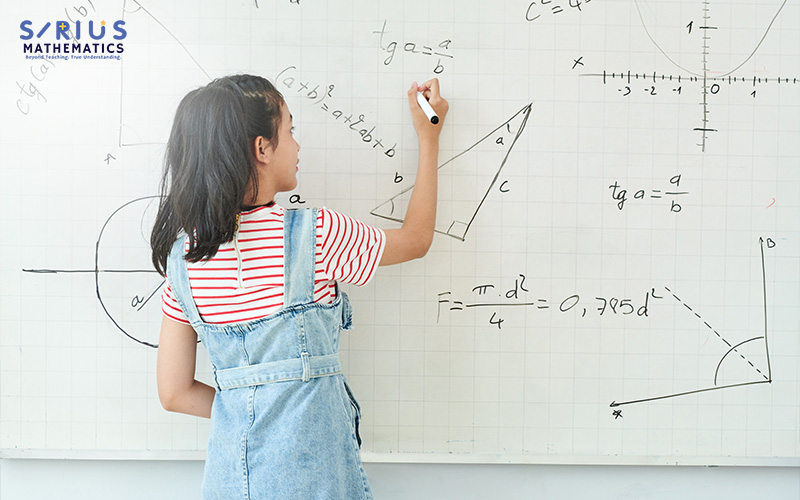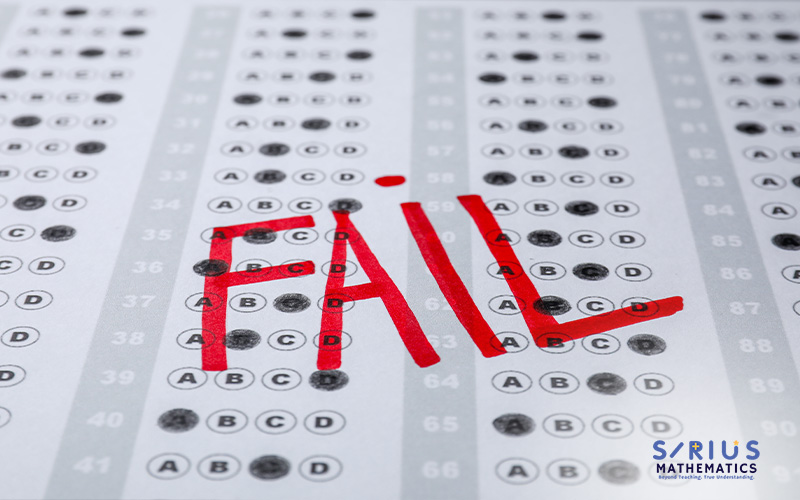Key Takeaways:
- How to Prevent Careless Mistakes in Math: Master Math Accuracy
The following strategies can help you reduce avoidable errors and score in exams:
- Read questions carefully
- Underline key information
- Show working neatly
- Double-check your work
- Practise under timed conditions
Introduction
Does this sound familiar to you: studied the maths topic and knew how to solve the question, but still lost marks. Well, you’re not alone. Many students experience this not because they don’t understand the maths concept, but because of small, preventable mistakes. These minor errors often come from rushing, misreading questions, or copying numbers incorrectly.
The good news is that, with the right strategies and a little discipline, these errors are entirely avoidable. Follow this guide to learn how to prevent careless mistakes in math so you can secure the marks you’ve truly earned!
Pro Tips: How to Prevent Careless Mistakes in Math
1. Re-read Every Question Carefully
In the rush to finish a paper, it’s easy to assume what a question is asking based on the first few words. However, many tricky questions are designed to test your attention to detail. To avoid falling into these “traps”, read the question at least twice.
Another effective math exam strategy is to pay close attention to key terms in the question, like “difference,” “left,” or “more than.” For example, a question that asks, “How many apples are left after giving some away?” is asking for subtraction, not the total. Misreading that as an addition problem can lead to a completely wrong answer, even if your calculations are correct.
2. Underline Key Information
Often overlooked but highly effective, underlining or highlighting key numbers and words in a question can reduce the risk of missing crucial information. This includes units like cm, kg, and minutes, or specific instructions that guide your approach.
By training yourself to mark out these important details as you read, you give your brain a clear visual guide on what to focus on. This makes it easier to understand what the question wants and reduces unnecessary errors. Over time, this simple habit improves your overall accuracy during math exams.
3. Keep Your Working Neat and Clear
Messy handwriting or scribbled calculations can easily lead to skipped steps or copying the wrong number. This can be a major cause of careless errors in problem-solving. But when your steps are well-spaced and logically laid out, you can follow your thinking clearly and catch any mistakes before they cost you marks.

This is especially important for secondary students who face more complex, multi-step math problems. Secondary math often requires algebraic manipulation, geometry proofs, or multi-part calculations that can easily go wrong if the steps aren’t well organised. That’s why more math tuition for secondary students places strong emphasis on a clean layout and complete steps.
4. Always Use a Checking Routine
Want to know how to prevent careless mistakes in math? Always reserve the last 5–10 minutes of your paper for checking. Don’t just skim. Try going through your answers methodically:
- Check if the final answers are labelled with the correct units.
- Re-do mental calculations to spot errors.
- Re-read the question to be sure you’re answering what it asks (e.g. whether it’s looking for “how many were left” or the “total”)
A systematic and focused checking routine can catch many small errors that otherwise slip through.
5. Practise Under Real Exam Conditions
Many students assume that simulating exam pressure is just another standard math revision technique. In fact, it also helps them to sharpen focus and improve their ability to spot and correct mistakes. Over time, the process will boost their overall math accuracy.
Working on mock papers under timed conditions trains you to manage stress and stay organised. When you’re used to the time pressure, you’re less likely to rush through questions, skip important steps, or misread key information. This practice helps you stay calm and focused, allowing you to catch errors early and avoid the small slip-ups.
Why Improving Math Accuracy Matters
Careless mistakes might seem small, but they can have a major impact on your overall performance. Getting close to the right answer isn’t enough, especially in exams where every mark counts. That’s why improving math accuracy is just as important as understanding the concepts.
By recognising common errors and using effective exam strategies, you can take charge of your results and show what you’re truly capable of. Reducing careless slip-ups helps ensure you get the marks you’ve earned. Whether you’re revising at home or attending a secondary math tuition, focusing on accuracy could be the key to moving from a B to an A.
How Tuition Provides Additional Support
Knowing how to prevent careless mistakes in math is only part of the equation. To truly strengthen these habits and apply them effectively, targeted guidance is key. That’s where structured support comes into play.
As a trusted math tuition centre in Singapore for primary, secondary, and other academic levels, Sirius Mathematics is committed to helping students move beyond rote memorisation. Through our Mathematical Analysis Framework, we focus on building deep conceptual understanding and strengthening strategic problem-solving skills. This structured approach enables students to reduce careless mistakes and tackle questions more effectively.
Contact us and let us help you score with confidence.

